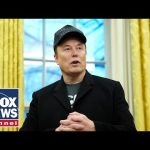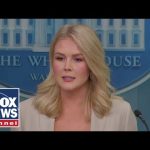President Donald Trump’s sweeping tariff policy has sparked intense debate across the globe, as nations grapple with the implications of his “Fair and Reciprocal Plan.” This initiative, announced on February 13, 2025, aims to address longstanding trade imbalances by imposing reciprocal tariffs on countries that have exploited America’s open markets while maintaining high barriers to U.S. goods. With tariffs set to take effect on April 5, Trump’s plan is being hailed by supporters as a necessary correction to decades of unfair trade practices.
The numbers paint a stark picture of global inequity in trade. Countries like Japan impose a 50% tariff on American goods, while South Korea and India levy rates exceeding 60%. Even allies such as Canada and the European Union have been called out for their restrictive policies, including Canada’s infamous dairy tariffs that exceed 200% on certain products. These barriers have disproportionately harmed American farmers, manufacturers, and small businesses, forcing them to compete against subsidized foreign industries in an uneven playing field.
Trump’s tariffs are not merely economic measures—they are framed as a matter of national security. The president has argued that dependence on foreign supply chains for critical resources like steel, aluminum, and pharmaceuticals undermines America’s ability to respond effectively to geopolitical crises. By reshoring manufacturing and incentivizing domestic production, Trump’s policy seeks to reduce vulnerabilities and restore American self-reliance.
Critics, however, warn of potential economic fallout. Farmers and manufacturers reliant on exports fear retaliatory tariffs from affected nations, which could shrink international markets for U.S. goods. Additionally, higher import costs may lead to inflationary pressures at home, raising prices for consumers. Despite these concerns, Trump’s administration remains resolute, emphasizing the long-term benefits of rebuilding America’s industrial base and reducing the trade deficit.
Ultimately, Trump’s tariff policy represents a bold shift in America’s approach to international trade. It challenges the status quo of globalization that has prioritized corporate profits over national interests and workers’ livelihoods. While the immediate effects may be disruptive, supporters believe this strategy will pave the way for a more prosperous and secure future—one where American industries thrive without being undermined by unfair foreign competition. As these tariffs take effect, the world will be watching closely to see whether this bold experiment in economic nationalism succeeds in reshaping global trade dynamics.




